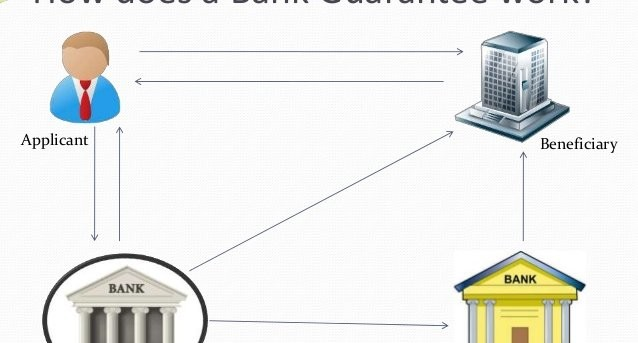Apr 21, 2023 By Kelly Walker

What is the difference between a bank guarantee and a letter of credit? This is an important question to answer, as these two documents offer different levels of protection when it comes to international business transactions. Both assure that payment will be made if certain conditions are met - but how do they compare against each other?
In this blog post, we'll dive into the key differences between a bank guarantee and a letter of credit so you can better understand which one might be most suitable for your business needs.
Understanding Bank Guarantees and Letters of Credit
Whether you’re making big decisions in international business transactions or want to protect your interests, it pays to know what a bank guarantee and letter of credit can do for you. These documents assure that payment will be made if certain conditions are met, but they have some key differences.
A bank guarantee is an agreement between two parties in which a bank agrees to cover one party's debt if they cannot pay the other. The bank acts as a third-party guarantor and covers any losses resulting from the first party’s failure to meet its obligations. Bank guarantees can be used for domestic and international trade, guaranteeing that the buyer will fulfill their payment obligations.
Bank Guarantee and How Does it Work
A bank guarantee is an agreement between two parties in which a bank agrees to cover one party's debt if they cannot pay the other. This arrangement allows businesses to protect their interests when entering into transactions with new customers or suppliers and provides an added level of assurance in international business dealings.
A bank guarantee works by providing the guarantor with security that they will be compensated if the other party fails to fulfill their obligations. The bank is responsible for any losses resulting from this failure and may require collateral, such as a cash deposit or another asset, to cover any expected losses. The guarantor also holds the right to demand that any outstanding balance be paid immediately if the other party cannot do so.
Before entering into a bank guarantee agreement, both parties must agree on the terms and conditions of the agreement, which may include a maximum amount of liability and other stipulations. Once these details have been agreed upon, the guarantor will issue a written document outlining the agreement.
In essence, bank guarantees provide businesses greater security when engaging in transactions with unfamiliar parties or conducting international trade deals. This can be especially important for businesses looking to protect against unpaid suppliers or customers who may fail to deliver on their obligations.
Letter of Credit and How Does It Work
A letter of credit is a document issued by a bank that guarantees payment to the seller or beneficiary if the buyer or applicant fails to meet their obligations. This type of agreement is typically used when dealing with international business transactions, as it requires the involvement of a third party (the bank) to validate and guarantee payment.
Banks issue letters of credit to protect both the buyer and seller. The issuing bank will act as a middleman between both parties, collecting payment from the buyer and then passing it on to the seller once all conditions have been met. This reduces the risk for both parties as they can be sure that payment will be made even if the other party fails to fulfill their obligations.
Before a letter of credit can be issued, both parties must agree on the terms and conditions of the agreement. This includes details such as the maximum amount of liability, delivery date, payment information, and any specific instructions or requirements for either side. Once these details have been agreed upon, the bank will issue a written document outlining the agreement.
The letter of credit is typically issued by the buyer's bank and sent to the seller's bank for validation. Once this has been done, the seller can begin their work with the assurance that payment will be made if all conditions are met. If the buyer fails to meet their obligations, the bank will be responsible for any losses from this failure.
Comparing Fees and Requirements for Each Option
When deciding between a bank guarantee and a letter of credit, it's important to consider the costs associated with each option. Generally speaking, letters of credit are considered to be more expensive as they require more paperwork and involve the involvement of two banks (the buyer’s and the seller’s). At the same time, bank guarantees do not require any type of paperwork and involve just one bank.
Making an Educated Decision About The Best Choice For Your Business
Ultimately, making an informed decision between a bank guarantee and a letter of credit depends on the specific needs of your business. Suppose you're looking for more security when entering into international transactions. In that case, a letter of credit is likely the best option as it assures that payment will be made even if the other party fails to meet their obligations.
However, a bank guarantee may be more suitable if you're looking for a cheaper option and don't require the added security of a letter of credit. It's important to consider the fees and requirements of each option before making your final decision.
FAQs
Q: Which type of document is best for my business needs?
A: It depends on the situation. Generally, bank guarantees are used when there's a contract with an unknown party or who poses a higher risk of defaulting on payment. A letter of credit is typically used when one party may not be able to fulfill their contractual obligations due to financial issues. Ultimately, you must assess the risks and decide which document is best for your situation.
Q: How does a bank guarantee or letter of credit provide assurance?
A: Both documents assure that payment will be made if certain conditions are met – either by the borrower (bank guarantee) or a buyer (letter of credit). Banking and financial institutions assure their creditworthiness, as well as by guaranteeing payment for the other party. This helps to reduce the risk of default or non-payment when dealing with international business transactions.
Q: What should I do if I have further questions about bank guarantees or letters of credit?
A: If you have any further questions about bank guarantees or letters of credit, it's always best to speak with a qualified financial advisor. They will be able to provide accurate and up-to-date information on these topics and answer any specific questions you may have. Doing so enables you to make an informed decision tailored to your business needs.
Conclusion
When engaging in international business transactions, a bank guarantee and a letter of credit are two important documents that can assure payment. Depending on the specific needs of your business, one may be more suitable than the other – it's important to carefully consider fees and requirements before making your decision. If you have further questions, speak with a qualified financial advisor. With their help, you can ensure that your business is making the most informed decision regarding bank guarantees and letters of credit.
-

How Does Fortnite Make Money?
Mar 20, 2023
-

What is a Salvage-Title
Feb 04, 2023
-

What is a Stock Screener
Mar 30, 2023
-

What Laws and Regulations Govern the Use of Limited Common Elements?
May 20, 2023
-

Planning Finances For A Blended Family
Feb 25, 2023
-

What is Audio Editing Software
Mar 29, 2023
-

What Is a Loss Carryback?
May 16, 2023
-

Everything You Should Know About Additional Child Tax Credit?
Mar 27, 2023




